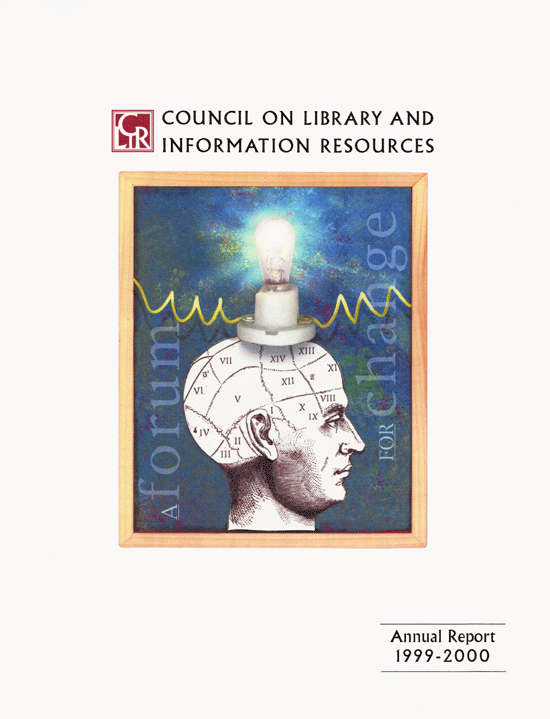
![]()
- Resources for Scholarship
- Preservation Awareness
- Digital Libraries
- Economics of Information
- Leadership
- International Developments
![]()
![]()
- Betty G. Bengtson
University of Washington
- Virginia Betancourt
Fundacion Romulo Betancourt
- Christine L. Borgman
University of California at Los Angeles
- Robert Bovenschulte
American Chemical Society
- Jerry D. Campbell
University of Southern California
- Stanley A. Chodorow
University of California
- Billy E. Frye
Emory University
- David B. Gracy II
The University of Texas at Austin
- Nils Hasselmo
Association of American Universities
- Paul LeClerc
New York Public Library
- Klaus-Dieter Lehmann
Stiftung Preu§ischer Kulturbesitz
- Deanna B. Marcum
Council on Library and Information Resources
- Marilyn Gell Mason
OCLC
- Charles Phelps
University of Rochester - Elaine Sloan
Columbia University
- Winston Tabb
Library of Congress
- Dan Tonkery
The Faxon Company
- Sidney Verba
Harvard University
![]()
The Council on Library and Information Resources (CLIR) grew out of the 1997 merger of the Commission on Preservation and Access (CPA) and the Council on Library Resources (CLR). Over the years, CPA and CLR, in partnership with libraries, archives, and other information providers, advocated collaborative approaches to preserving the nation’s intellectual heritage and strengthening the many components of its information system. CLIR was founded to continue this tradition of support for a national information system and a seamless web of information resources, of which all libraries and archives are a part.
The convening role is central to CLIR’s mission. CLIR brings together experts from around the country and around the world and asks them to turn their intelligence to the problems that libraries, archives, and information organizations face as they integrate digital resources and services into their well-established print-based environments.
CLIR urges individuals to look beyond the immediate challenges and imagine the most desirable outcomes for the users of libraries and archivesto be rigorously practical and to dream.

